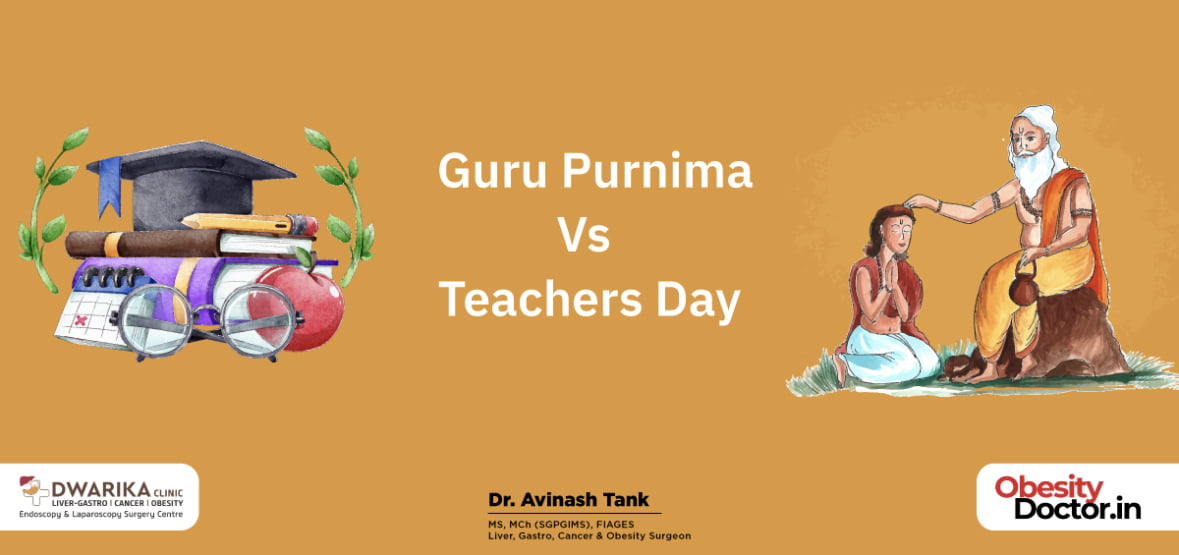
Reading Time: 2 minutes
Understanding the difference between Guru Purnima and Teachers’ Day
In the realm of honoring educators and mentors, two significant occasions stand out: Guru Purnima and Teachers’ Day.
While both celebrate the guidance and knowledge imparted by teachers, they hold distinct cultural and historical significance.
This article explores the differences between Guru Purnima and Teachers’ Day, shedding light on their unique attributes and the contexts in which they are observed.
Origin and Cultural Context
Guru Purnima:
Guru Purnima is a Hindu festival that pays homage to spiritual and academic teachers. It falls on the full moon day (Purnima) in the Hindu month of Ashadha (June-July). The festival’s origin is rooted in ancient Indian traditions, where disciples express gratitude to their gurus (spiritual teachers) for imparting wisdom and guidance.
Teachers’ Day:
Teachers’ Day, observed in various countries around the world, including India, is a celebration of educators and their contributions to society. The date varies from country to country; in India, it is celebrated on September 5th in honor of Dr. Sarvepalli Radhakrishnan’s birthday. The day acknowledges teachers from all walks of life, including academic, artistic, and vocational disciplines.
Purpose and Intent
Guru Purnima:
Guru Purnima primarily focuses on the reverence and gratitude towards spiritual teachers, gurus, and mentors who guide individuals on their spiritual journeys. It is a day for disciples to reflect on their spiritual progress and acknowledge the significance of their mentors in their lives.
Teachers’ Day:
Teachers’ Day, on the other hand, is a broader celebration that recognizes teachers across various fields. It honors their role in shaping individuals’ academic, personal, and professional growth. While it includes academic educators, it also extends to mentors who contribute to holistic development.
Observance
Guru Purnima:
On Guru Purnima, disciples offer puja (worship), seek blessings, and express gratitude to their gurus. Spiritual gatherings, discourses, and meditation are common practices. The day is marked by profound respect for spiritual knowledge.
Teachers’ Day:
Teachers’ Day is often celebrated in schools, colleges, and educational institutions. Students organize events, cultural programs, and activities to showcase their appreciation for their teachers. Gifts, cards, and tokens of gratitude are exchanged as gestures of acknowledgment.
Spiritual vs. Academic Focus
Guru Purnima:
The emphasis of Guru Purnima is on the spiritual connection between the guru and disciple. It is a day to remember the spiritual teachings and guidance that lead to self-discovery and enlightenment.
Teachers’ Day:
Teachers’ Day centers on academic and holistic education. It recognizes teachers’ contributions in imparting knowledge, fostering critical thinking, and shaping well-rounded individuals.
Conclusion
While Guru Purnima and Teachers’ Day share the common theme of honoring teachers and mentors, they are distinct in their origins, focus, and cultural contexts.
Guru Purnima is deeply rooted in spiritual traditions and pays homage to spiritual guides, whereas Teachers’ Day is a broader celebration that encompasses educators from various domains.
Both occasions underscore the invaluable role of teachers in guiding, inspiring, and shaping lives.
Also Read: Indian National Teachers’ Day Vs. World Teachers’ Day
